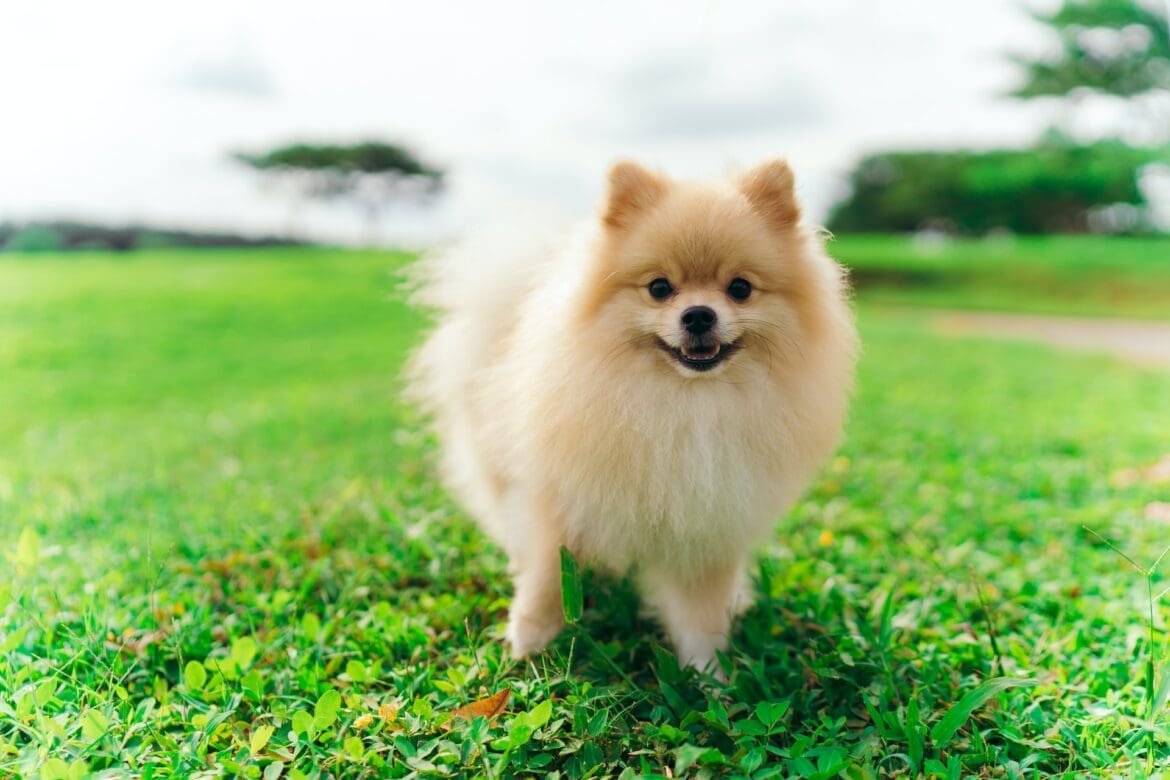Table of Contents
Are you a proud owner of a Pomeranian who is experiencing persistent coughing? Pomeranian coughing can be an alarming issue, but understanding its reasons and taking appropriate measures can help alleviate your pet’s discomfort. In this ultimate guide, we will explore the causes of Pomeranian coughing and provide professional advice on managing and treating it.
Common Causes of Pomeranian Coughing
Several reasons can cause pomeranian coughing, some more concerning than others. One of the most common causes is respiratory infections, such as Kennel cough. Kennel cough is a highly contagious respiratory disease caused by a virus or bacteria that spreads through contact with infected dogs. It can cause coughing, sneezing, and nasal discharge in dogs.
Another common cause of Pomeranian coughing is allergies. Various factors, including pollen, dust, and certain foods can trigger allergies. When a Pomeranian inhales allergens, it can irritate the respiratory system, leading to coughing.
Other causes of Pomeranian coughing include tracheal collapse, heart problems, and lung disease. Tracheal collapse occurs when the trachea, the airway that connects the throat to the lungs, weakens and narrows. This can cause coughing, wheezing, and difficulty breathing. Heart problems like congestive heart failure can cause coughing in Pomeranians. Lung diseases, such as pneumonia, can cause coughing, fever, and difficulty breathing.

Different Types Of Coughs In Pomeranians
Different types of coughs can indicate different health issues in Pomeranians. A dry, hacking cough is typically associated with Kennel cough, while a moist, productive cough can indicate pneumonia. A honking cough, which sounds like the dog is trying to clear something from its throat, is often a sign of tracheal collapse.
A cough that occurs mainly at night may indicate heart disease. Pay attention to the type of cough your Pomeranian is experiencing to help diagnose the underlying cause.
Symptoms and Signs Of Pomeranian Coughing
Apart from coughing, Pomeranians may exhibit other symptoms that can help indicate the cause of their cough. For instance, if your Pomeranian has a respiratory infection, it may also have a runny nose, sneezing, and a loss of appetite. If it has allergies, it may have itchy skin, watery eyes, and frequent scratching.
Pomeranians with tracheal collapse may experience difficulty breathing, especially when excited or exercising. Heart disease may cause your Pomeranian to tire quickly, have trouble breathing, or experience fainting spells.
Diagnosing Pomeranian Coughing
If your Pomeranian is experiencing persistent coughing, it’s best to take it to a veterinarian for a proper diagnosis. The veterinarian will physically examine your Pomeranian, listening to its lungs and heart. The veterinarian may also recommend diagnostic tests, such as blood work, x-rays, or a tracheal wash, to determine the underlying cause of the cough.
Treating Pomeranian Coughing At Home
Depending on the underlying cause of the cough, several ways exist to manage and treat Pomeranian coughing at home. For instance, if your Pomeranian has a respiratory infection, your veterinarian may prescribe antibiotics or cough suppressants to help alleviate the symptoms.
If your Pomeranian has allergies, avoiding the allergen or using antihistamines can help.
If your Pomeranian has tracheal collapse, your veterinarian may recommend weight loss, exercise restriction, or using a harness instead of a collar to reduce pressure on the trachea. If your Pomeranian has heart disease, your veterinarian may prescribe medication to help manage the condition.

When To Seek Veterinary Care For Pomeranian Coughing
While some causes of Pomeranian coughing can be managed at home, others require immediate veterinary care. If your Pomeranian is experiencing severe coughing, difficulty breathing, or fainting spells, it’s crucial to take it to the veterinarian immediately. These symptoms may indicate a severe underlying condition that requires urgent treatment.
Preventing Pomeranian Coughing
Preventing Pomeranian coughing involves taking several measures to keep your pet healthy. Regular exercise and a healthy diet can help keep your Pomeranian in good shape, reducing the risk of heart disease and respiratory infections. Avoid exposing your Pomeranian to other dogs that may have Kennel cough or other contagious illnesses. Regular grooming can also help prevent allergies by reducing exposure to dust and pollen.
Natural Remedies For Pomeranian Coughing
Natural remedies can be used alongside traditional treatments to help alleviate Pomeranian coughing. For instance, honey can soothe the throat and reduce coughing, while steam therapy can help clear the respiratory system. Essential oils, such as eucalyptus or peppermint oil, can also reduce coughing. However, it’s essential to consult your veterinarian before using any natural remedies, as some may harm Pomeranians.
Conclusion
Pomeranian coughing can be a concerning issue for pet owners, but understanding the underlying causes and seeking appropriate treatment can help alleviate the symptoms. By paying attention to the type of cough, symptoms, and signs your Pomeranian is exhibiting, you can help diagnose the underlying cause and take appropriate measures. With proper management and treatment, your Pomeranian can live a happy and healthy life, free from persistent coughing.

